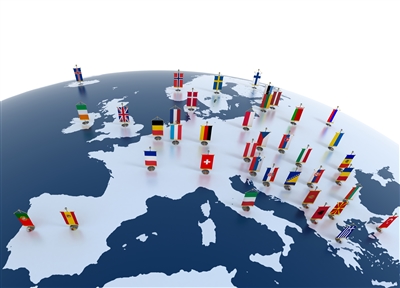Which are the ten most educated countries in the world?

Every year the OECD - the Organisation for Economic Co-operation and Development, an intergovernmental economic organisation containing 36 member countries, ranks the ten best educated countries in the world. The USA typically dominates these surveys, having come top for the last few years. How though are the countries assigned an order? What makes the education provided by one country better than the education provided by another? Surely something as abstract as a whole country`s `education` isn`t something that can be assigned a numerical value. Simply calculating the percentage of students attaining an `A` grade in each country isn`t going to provide an answer - many countries don`t use this grading system. As of last year the UK replaced the A to D marking method with a numerical system for GCSE`s. To compound the problem, not all countries test their pupils at the same age, and there`s no reason to think there will be any correlation between the syllabi of different countries, or even different states or provinces within large countries.
How then does the OECD compile a list of the top ten educated countries? They criteria they work to only applies to adults, and they define the education level as the percentage of adults who are between the ages of 25 and 64, who have completed a form of higher education - `tertiary education` in their words - typically in the form of a degree, or vocational course. Using this definition it is then an elementary task to work out what fraction of the population have attained this tertiary, or final stage of education. The top ten countries from their survey are listed below:
| 10. Luxembourg | 42.86% |
| 9. Norway | 43.02% |
| 8. Finland | 43.60% |
| 7. Australia | 43.74% |
| 6. United States | 45.67% |
| 5. United Kingdom | 45.96% |
| 4. South Korea | 46.86% |
| 3. Israel | 49.90% |
| 2. Japan | 50.50% |
| 1. Canada | 56.27% |
As can be seen Canada comes out as the most educated country in the world, the OECD revealing that over 56% of its adult population have attained some kind of higher certificate after leaving school. Of course this kind of analysis doesn`t take into account the kind of course taken. It would equate a PHD is astrophysics with a degree in the liberal arts, not to disparage such a cultured qualification. America, normally coming in the top three of such surveys, only attained 6th place, with the US census claiming that 33% of the population have achieved a bachelors degree of higher.
Measuring the level of education, be it of a country, or an individual, is not as straightforward a matter as it might appear - indeed, the very premise of calculating an overall education level seems to me a little disingenuous, or even naive. How exactly should education be measured? The grades awarded to students every year for GCSE`s and a levels are only apportioned out on a relative scoring system, with maybe the top 5% being classified as those who will be awarded an A* grade. In the same way it is not possible for an entire population to be geniuses, it is also not possible for a whole population of people to even be clever. These are sorting and ranking adjectives, and are essentially comparative, used to classify us according to our peer group. It only makes sense to measure the educational level of one country against another if they share similar values. Comparing the education levels two countries of vasty dissimilar values and norms, for example a western secular country, such as Switzerland, with a theocratic regime, such as Saudi Arabia, will be a largely meaningless exercise, since what it means to be an `educated person` will be very different in each country.

 Add a Comment
Add a Comment